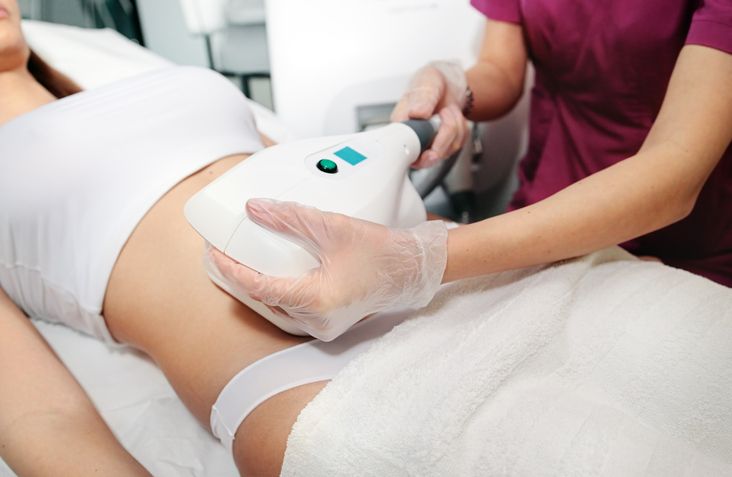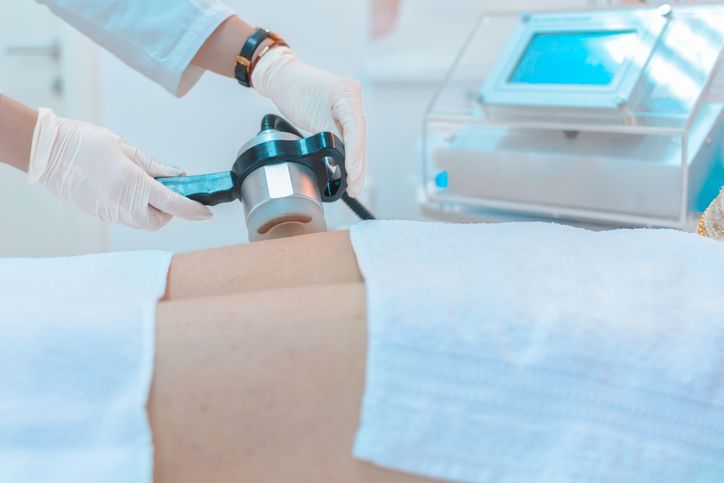
Book Now to Experience
F8 Hair Regrowth Treatment
1 Minute Self-Registration
Date should not be before minimal date
Author: Leila Tan|2024-3-6
You may have noticed that your hair is getting thinner or falling out more than normal if you have diabetes. This is because diabetes can have different effects on how your hair grows. In this blog post, we'll talk about how diabetes can cause hair loss and what you can do to stop it or treat it.

1
Diabetes: Know the Family Tree Before Treating Hair Loss
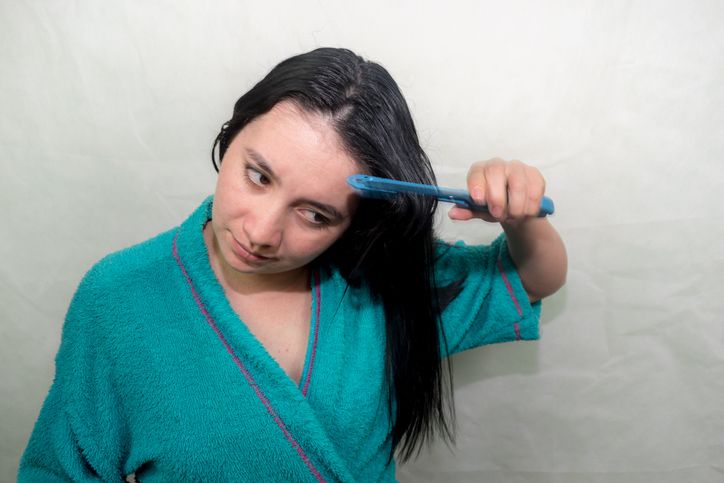
Diabetes is a long-term disease that changes how glucose, a type of sugar that gives cells their main source of energy, is used by the body. Diabetes comes in different forms, and each type has its own reasons and ways to treat it. Here's the types of diabetes that we commonly know, and most of them have the tendency to increase risk of hair fall.
Type 1 diabetes
Type 1 diabetes happens when the body's immune system attacks and kills the cells in the pancreas that make insulin by mistake. Insulin is a hormone that makes it easier for glucose to get into cells. Glucose builds up in the blood without insulin, which can lead to major problems. People with type 1 diabetes need insulin shots or an insulin pump to control how much sugar is in their blood. Most people get type 1 diabetes when they are young or in their teens, but it can happen at any age.
Type 2 diabetes
Type 2 diabetes happens when the body either stops responding to insulin or doesn't make enough of it. This builds up glucose in the blood, which makes the blood sugar level go up. Type 2 diabetes is more common in people, especially those who are overweight, don't get enough exercise, or come from a diabetic family. Type 2 diabetes can often be controlled by making changes to the way you live, like eating healthier, working out more often, and losing weight. Some people with type 2 diabetes may also need to take pills or get insulin shots to keep their blood sugar levels under control.
Gestational diabetes
Gestational diabetes happens when a woman who is pregnant gets high blood sugar levels. This can hurt both the mother and the baby's health. Gestational diabetes generally goes away after the baby is born, but it makes it more likely that the woman will get type 2 diabetes in the future. During pregnancy, women who have gestational diabetes need to keep an eye on their blood sugar levels and stick to a special diet and exercise plan. Some women may also need to take medicine or get insulin shots to keep their blood sugar levels in a normal range.
Other types of diabetes include monogenic diabetes, which is caused by a single gene mutation, neonatal diabetes, which affects newborns and children, and secondary diabetes, which is caused by other conditions or factors that damage the pancreas or change how insulin works or is made.

2
How Diabetes Affects Our Normal Hair Growth Cycle
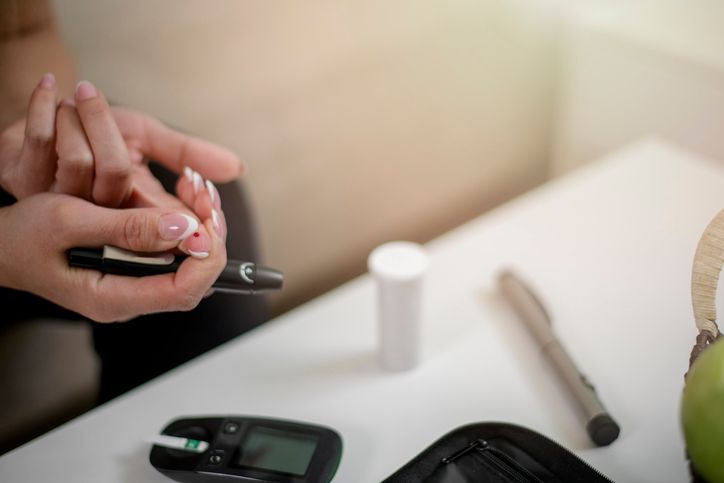
For those who suffer from the above and are experiencing thinning hair, you must understand how diabetes lead to hair loss before getting deeper. There are four stages of hair growth cycle: the active growth stage, the transition stage, the resting stage, and the loss stage. Most of your hair is usually in the growing phase, and only a small amount is in the other phases. Diabetes, on the other hand, can throw off this balance and cause more hair to go into the resting or losing phase.
Normally, about 90% of your hair is in the anagen phase, 1% in the catagen phase, and 9% in the telogen phase at any given time. However, diabetes can disrupt this balance and cause more hair to enter the telogen phase prematurely. This can result in diffuse hair loss all over the scalp or in specific areas. Diabetes can also affect the quality and texture of your hair, making it dry, brittle, or prone to breakage. There are several factors that can contribute to losing hair if you have diabetes, such as:
Poor blood circulation
Diabetes can damage your blood vessels and reduce blood flow to your scalp and other parts of your body. This can limit the amount of oxygen and nutrients that reach your hair follicles and impair their function.
Hormonal imbalance
Diabetes can affect your hormone levels and cause fluctuations in insulin, cortisol, thyroid hormones, and sex hormones. These hormones play a role in regulating your hair growth cycle and influencing its duration and intensity.
Inflammation
Diabetes can trigger chronic inflammation in your body, which can damage your tissues and organs. Inflammation can also affect your immune system and cause it to attack your own cells, including your hair follicles. This can lead to autoimmune conditions such as alopecia areata, which causes patchy hair loss.
Infection
Diabetes can weaken your immune system and make you more susceptible to infections. Bacterial or fungal infections can affect your scalp and cause inflammation, itching, scaling, or scarring. These can damage your hair follicles and prevent them from producing new hair.
Medication
Some medications that are used to treat diabetes or its complications can have side effects that include hair loss. For example, metformin, a common oral drug for type 2 diabetes, can lower your vitamin B12 levels and cause anaemia, which can affect your hair growth. Other drugs that can cause hair loss include anticoagulants, beta-blockers, statins, and immunosuppressants.

3
Fear Not, Hair Thinning can be Saved with These Nutrients
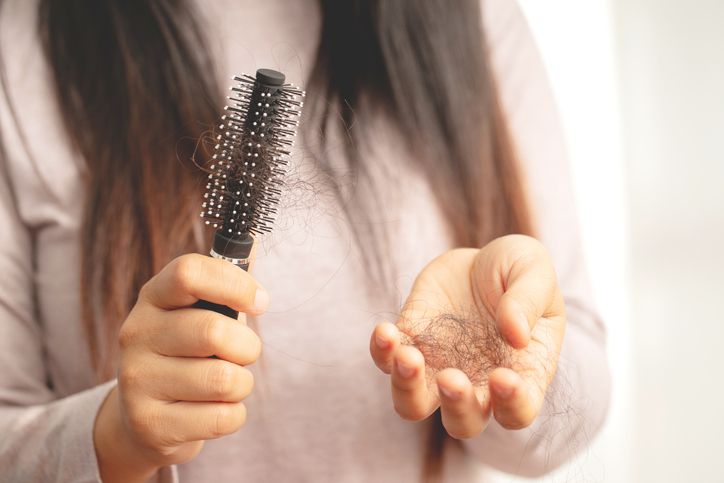
The good news is that diabetes-related hair loss can usually be stopped if the cause is handled. This means that having your blood sugar levels under control, eating well and exercising regularly, taking your medications as directed, and dealing with your stress can help stop or slow hair loss. Biotin, zinc, vitamin E, and aloe vera are some natural remedies and supplements that may help spur hair growth and improve hair quality. Three nutrients that may help people with diabetes and hair loss are biotin, zinc, and vitamin E. Here's what they can do for you:
Biotin
Biotin (vitamin B7) is an important chemical that your body needs to make energy and do other things. It can be found in oats and egg yolks, and you can also take it as a supplement. People often say that biotin pills and shampoos can make hair healthier and help lost hair grow back. Verywell Health says that biotin may help stop hair loss by making the hair cell stronger and making hair grow faster. But science doesn't have enough proof to show that biotin can stop hair loss or treat baldness. Biotin may also help people with diabetes because it may lower blood sugar levels and make the body more sensitive to insulin. But more study is needed to confirm these effects and figure out how much biotin is best for people with diabetes.
Zinc
Zinc is an element that is important for many parts of your health, like how your immune system works, how wounds heal, and how your body uses energy. It can be found in meat, fish, nuts, seeds, and other foods, and it can also be taken as a supplement. Zinc may help people with diabetes because it may help control their blood sugar levels and keep problems like infections and nerve damage from happening. University Health News says that zinc can also act as an antioxidant and help people with diabetes deal with reactive stress less. Oxidative stress is a situation in which your body has too many free radicals and not enough antioxidants. This can hurt your cells and tissues. Zinc can also help diabetics control their lipid metabolism, which means it can help lower their amounts of cholesterol and triglycerides. But zinc supplements should be taken with care because too much zinc can stop the body from absorbing copper and cause sickness, vomiting, and diarrhoea. Zinc may also help with hair loss because it keeps hair cells healthy and stops hair from getting thinner. But there isn't enough evidence to show that zinc can be used to help baldness or hair loss.
Vitamin E
Vitamin E is a fat-soluble vitamin that saves your cells from damage caused by free radicals. It does this by acting as an antioxidant. It can be found in foods like vegetable oils, nuts, seeds, and green leafy veggies. It can also be taken as a supplement. Vitamin E may be helpful for people with diabetes because it may help improve blood flow and keep problems like heart disease and kidney damage from happening. But there isn't much proof that vitamin E supplements help diabetes, and some studies have shown that high amounts of vitamin E may make you more likely to bleed or have a stroke. So, taking vitamin E supplements should be done under the watch of a doctor and with close attention paid to the blood-clotting factors. Vitamin E may also help stop hair loss by nourishing the head and increasing blood flow to the hair follicles. Medical News Today says that vitamin E may also help stop inflammation and oxidative stress in the head, both of which can lead to hair loss. But science has not found enough proof that vitamin E can stop hair loss or treat baldness.

4
How to Stop Hair Loss from Diabetes or Treat it
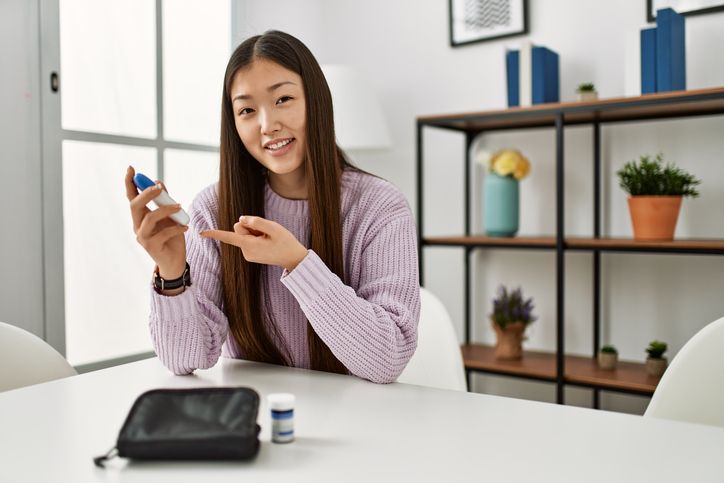
The good news is that diabetes-related hair loss is not forever and can sometimes be stopped or turned around. Here are some things you can do to deal with hair loss:
Keep your blood sugar levels within a healthy range.
This is the most important thing you can do to avoid or treat hair loss caused by diabetes. This will help keep your blood vessels from getting hurt and get more blood to your head. You can keep your blood sugar levels under control by doing what your doctor tells you to do about medicine, food, exercise, and watching what you eat.
Use solutions for hair loss.
There are some pills and lotions that can help make hair grow back or stop hair loss. Minoxidil (Rogaine), for example, is a lotion that you put on your hair twice a day. It works by sending more blood to your hair follicles and making the time when your hair is growing longer. But these treatments might have side effects or combine with other drugs, so you should talk to your doctor before using them.
Consider a treatment.
It is hard to not mention low level laser treatment (LLLT) when it comes to a discussion about effective hair loss treatment. In short, LLLT is a non-invasive therapy that uses low-level light to encourage hair growth and stop hair loss. People with diabetes are usually thought to be safe and able to use LLLT because it doesn't affect their blood sugar levels or cause any bad effects. But there are some things you should do before using LLLT to treat hair loss. Before starting LLLT, people with diabetes should talk to their doctor because they may have other health problems or take medicines that could interfere with the treatment. People with diabetes should also keep an eye on the health of their scalps and avoid LLLT if there are any signs of infection, redness, or damage to the skin. LLLT might not work for everyone, and the results could be different based on what is causing hair loss and how much hair is being lost. So, people with diabetes should have realistic goals and pay close attention to what their LLLT provider tells them to do.

Book Now to Experience
F8 Hair Regrowth Treatment
1 Minute Self-Registration
Date should not be before minimal date

5
Conclusion
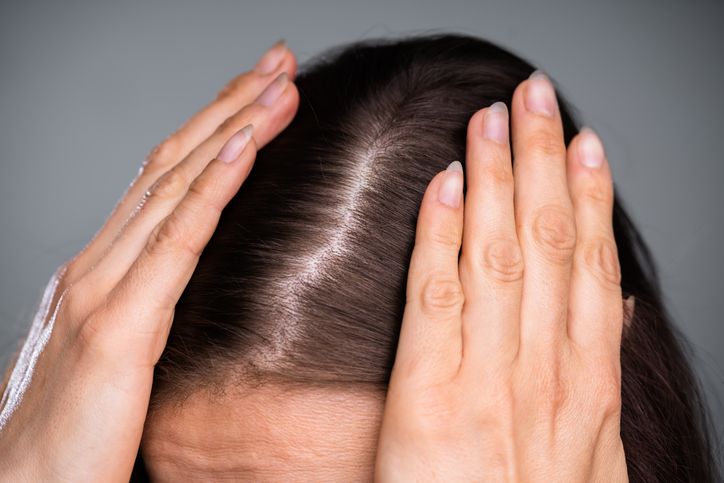
Diabetes can make you lose hair because it affects your blood sugar, hormones, immune system, and stress. But you can stop or treat hair loss caused by diabetes if you control your blood sugar, deal with your stress, use treatments for hair loss, and see a doctor. Remember that diabetes-related hair loss is not forever, and with the right care and hair loss treatment, you can enjoy hair regrowth in no time!
FAQ
1. What is central scalp hair loss, and how does it link to diabetes?
Central scalp hair loss is when the hair on the top and front of the head gets thin or falls out. It happens more often to women than to men, but anyone of any age can get it. Diabetes, especially type 2 diabetes, could be a cause of hair loss in the middle of the head. A 2019 study found that Black women with type 2 diabetes were more likely to lose a lot of hair in the middle of their heads.
2. How does blood sugar control affect hair growth?
Controlling your blood sugar is important for good hair growth. High blood sugar can hurt the blood vessels that bring oxygen and nutrients to the hair follicle, which can cause hair loss. Low blood sugar can also make you lose your hair because it affects the hormones that control hair growth. So, keeping blood sugar levels in the normal range can help stop or slow hair loss caused by diabetes.
3. What does insulin have to do with hair growth?
Insulin is a hormone that helps the body get energy from glucose, or sugar. Insulin also helps hair grow by speeding up the part of the hair cycle when hair is growing. Depending on the type of diabetes and care, a person with diabetes may have low or high insulin levels. By shortening the growth part of the hair cycle, low insulin levels can cause hair loss. High amounts of insulin can also cause hair loss by making the body more inflamed and causing oxidative stress, which can damage hair follicles.
4. What are some ways to treat hair loss caused by diabetes?
The best way to stop hair loss from diabetes is to take care of the diabetes itself. This could mean taking medicine, eating well, working out daily, and keeping an eye on your blood sugar levels. Some people may also find it helpful to take pills like biotin, zinc, iron, and vitamin B12 that help hair grow. But these supplements should be taken with care and under the direction of a doctor because they may interact with other drugs or cause side effects.
5. Can hair loss caused by diabetes be stopped?
Diabetes-related hair loss may be reversible if the cause is found and handled. For example, if hair loss is caused by not being able to handle blood sugar well, lowering blood sugar may help hair grow back. But some things that cause diabetes hair loss may not be able to be fixed, like a genetic predisposition, getting older, or getting scars on the head. In these situations, you might want to think about other choices, like hair transplantation or beauty products.

Book Now to Experience
F8 Hair Regrowth Treatment
1 Minute Self-Registration
Date should not be before minimal date
Recommended Articles
COPYRIGHT© NEW BEAUTY MANAGEMENT LIMITED 2024. ALL RIGHT RESERVED.

